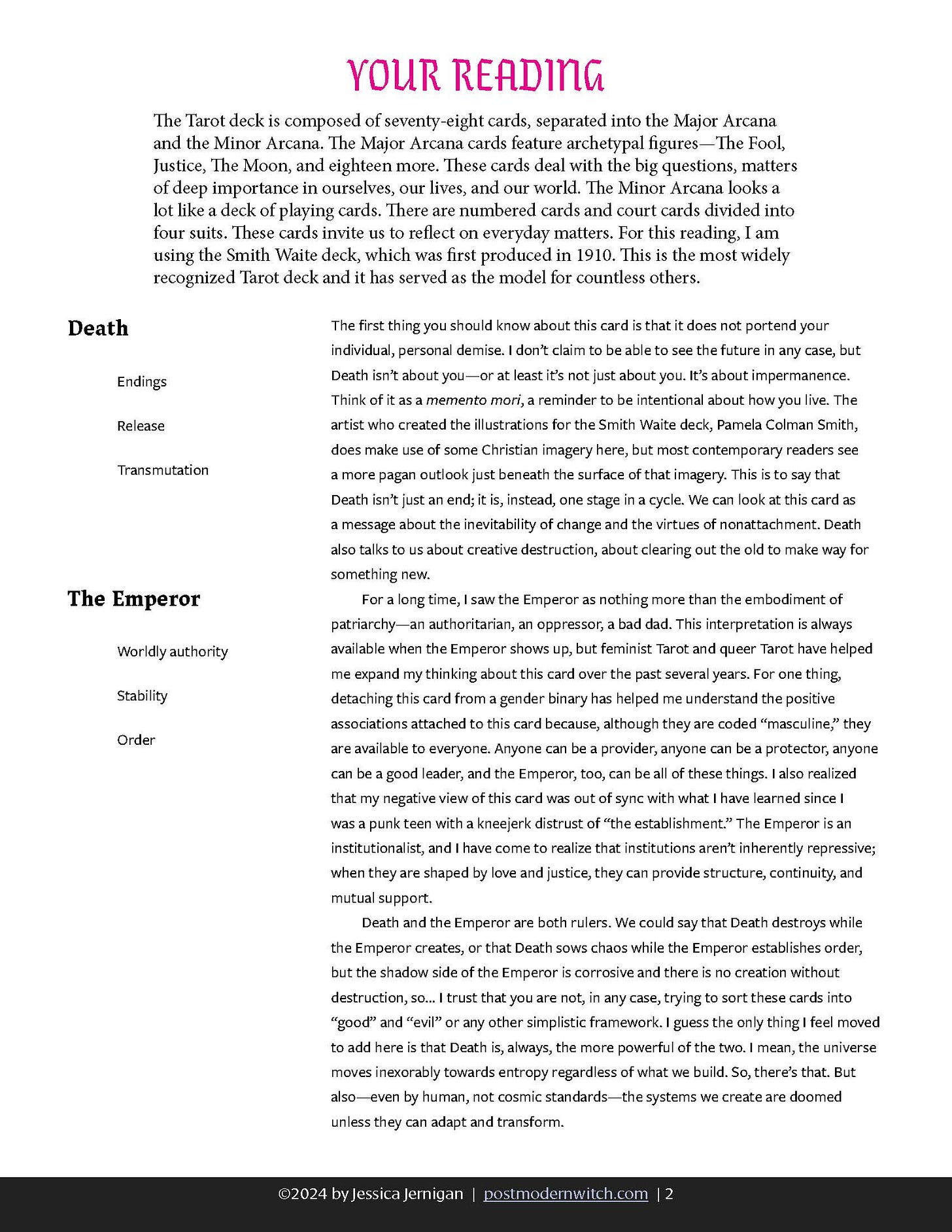I’ve been reading Tarot for other people as a regular practice for about 8 years, although my history with Tarot goes back to the 1980s. I hit a point where I felt like I was no longer learning anything from this work and that I didn’t have much of anything new to say to longtime clients. So, I took a break.
The project that is Postmodern Witch bubbled out of that hiatus. While I have mostly focused on writing, I started offering readings again without making much of a push to promote it. I feel good about the new direction my readings have taken, and I have found that starting with a client’s birth cards has been a good way for us to get to know each other.
What are birth cards? Birth cards are two Major Arcana cards determined by your date of birth. I don’t believe that our birth cards define us. I do believe that each of us can learn something important from every card in the Major Arcana, and that birth cards are a pretty good place to begin exploring these archetypes.
If you want to learn a little something about my approach to birth cards, here’s what my reading of my own birth cards looks like.:
Tarot is idiosyncratic. Ways of reading vary from reader to reader; having your cards read at a party is totally different from buying a distance reading on Etsy. And the meaning of a card varies from reading to reading, because every reader brings their own wisdom and experience to their interpretation.
Here’s what I bring to Tarot: I am a writer by trade. I am a scholar of religion and folklore. I am a deep well of knowledge that might seem useless until it suddenly turns out to be the key to everything.
If you would like to learn what I have to say about your birth cards, you can do that for $13. If you decide that you would like to continue working with me, you can take $13 off a 4-card reading or $27 off a Tarot for Transitions series. And if you find that you have received nothing of value in your reading, I will return your money to you.
Want to work with your birth cards yourself? The math involved is pretty simple, but there are also handy calculators available online. If you’re new to Tarot and looking for some help to get started, I can make a couple of recommendations:
Biddy Tarot kicks it old school while keeping it fresh. I do not agree with everything Brigit Esselmont has to say about Tarot, but I do find that her dictionary of Tarot meanings is a great place to start. When I feel totally stumped by a card in a reading, this is the source I consult to bring me back to basics. Esselmont has girlboss-hustle energy, but she also makes a lot of her teaching free.
Little Red Tarot was my introduction to queer Tarot, and I give Beth Maiden a whole lot of credit for helping me find a way to make Tarot relevant to my life. The library of interpretations available on this site is just terrific, and you don’t have to be queer yourself to appreciate the possibilities Maiden reveals by looking at Tarot through the lenses of justice and equity.







